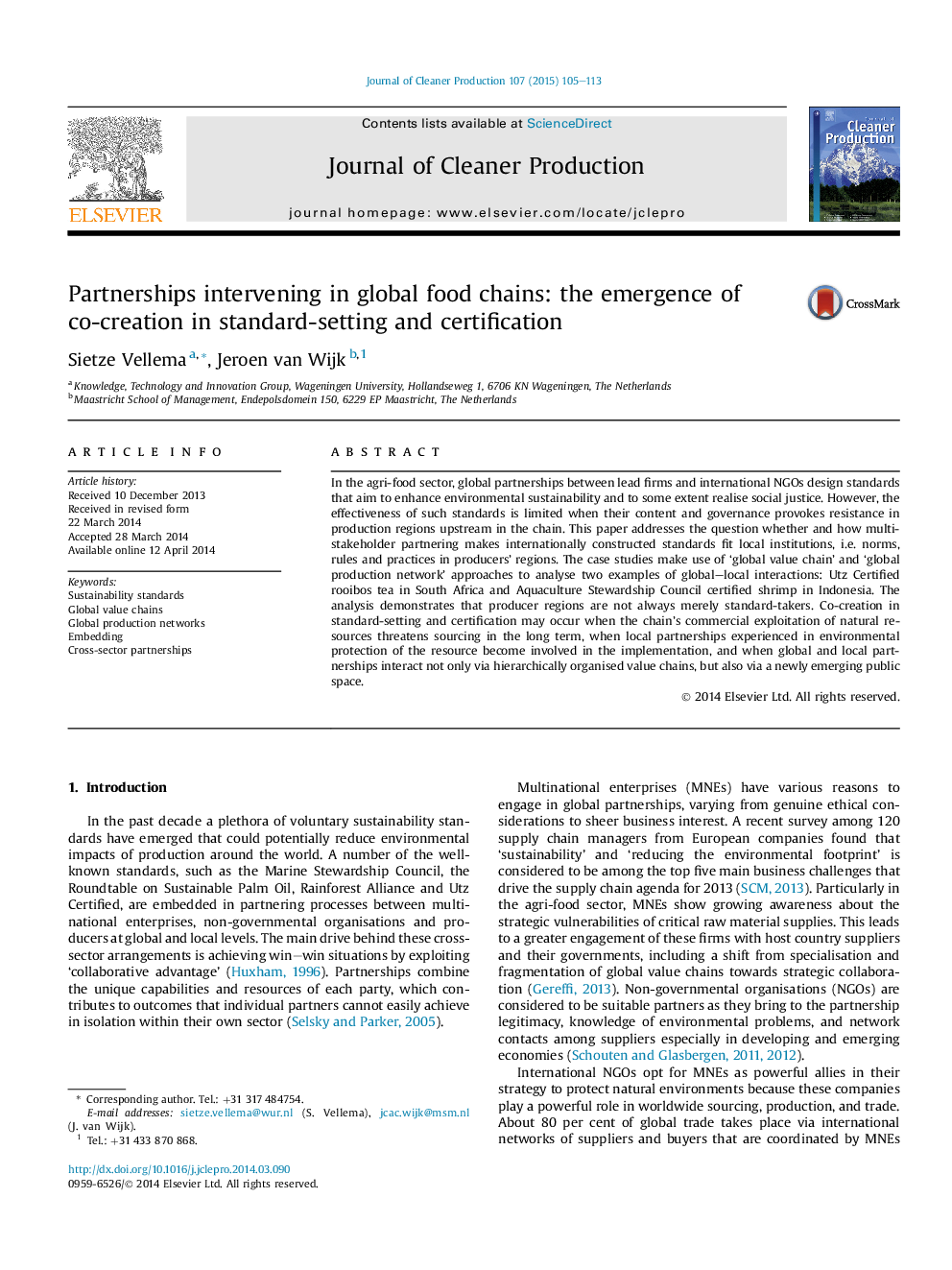| Article ID | Journal | Published Year | Pages | File Type |
|---|---|---|---|---|
| 1744401 | Journal of Cleaner Production | 2015 | 9 Pages |
Abstract
In the agri-food sector, global partnerships between lead firms and international NGOs design standards that aim to enhance environmental sustainability and to some extent realise social justice. However, the effectiveness of such standards is limited when their content and governance provokes resistance in production regions upstream in the chain. This paper addresses the question whether and how multi-stakeholder partnering makes internationally constructed standards fit local institutions, i.e. norms, rules and practices in producers' regions. The case studies make use of 'global value chain' and 'global production network' approaches to analyse two examples of global-local interactions: Utz Certified rooibos tea in South Africa and Aquaculture Stewardship Council certified shrimp in Indonesia. The analysis demonstrates that producer regions are not always merely standard-takers. Co-creation in standard-setting and certification may occur when the chain's commercial exploitation of natural resources threatens sourcing in the long term, when local partnerships experienced in environmental protection of the resource become involved in the implementation, and when global and local partnerships interact not only via hierarchically organised value chains, but also via a newly emerging public space.
Keywords
Related Topics
Physical Sciences and Engineering
Energy
Renewable Energy, Sustainability and the Environment
Authors
Sietze Vellema, Jeroen van Wijk,
